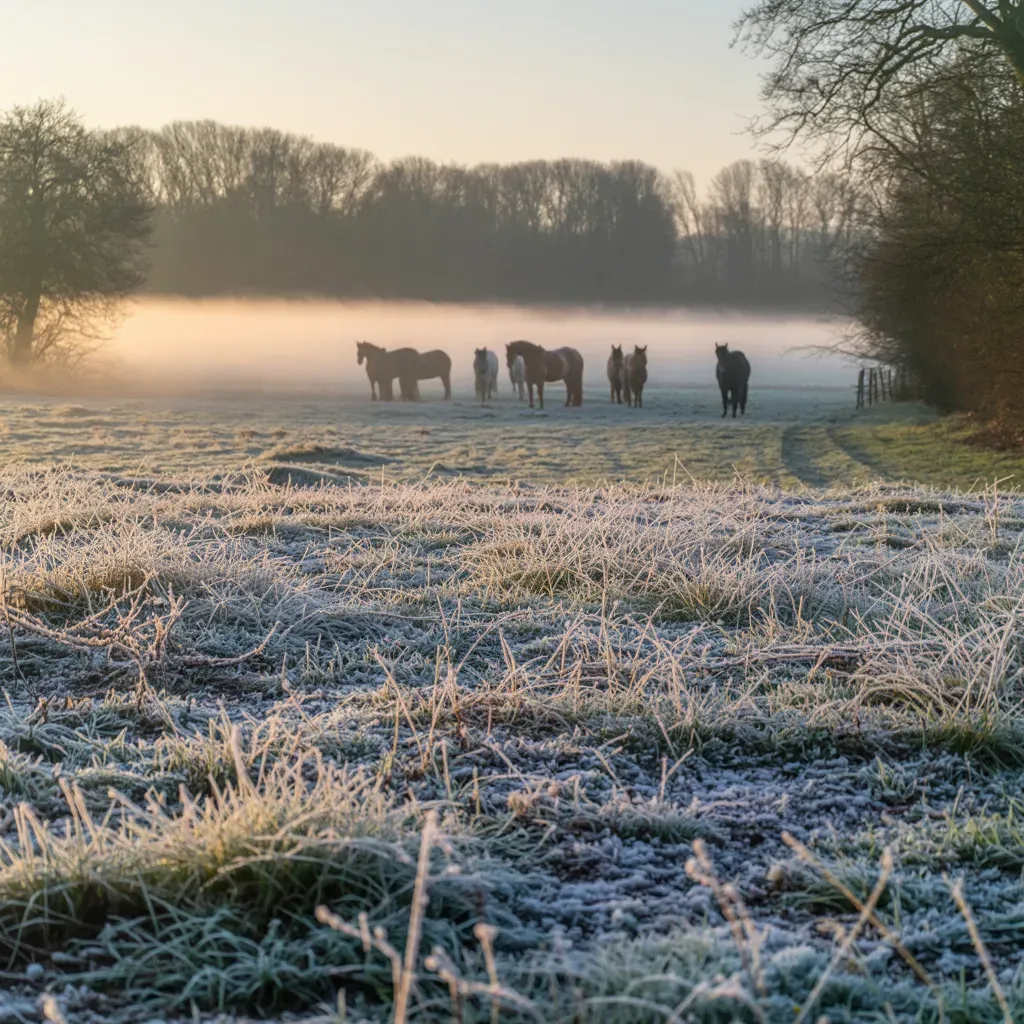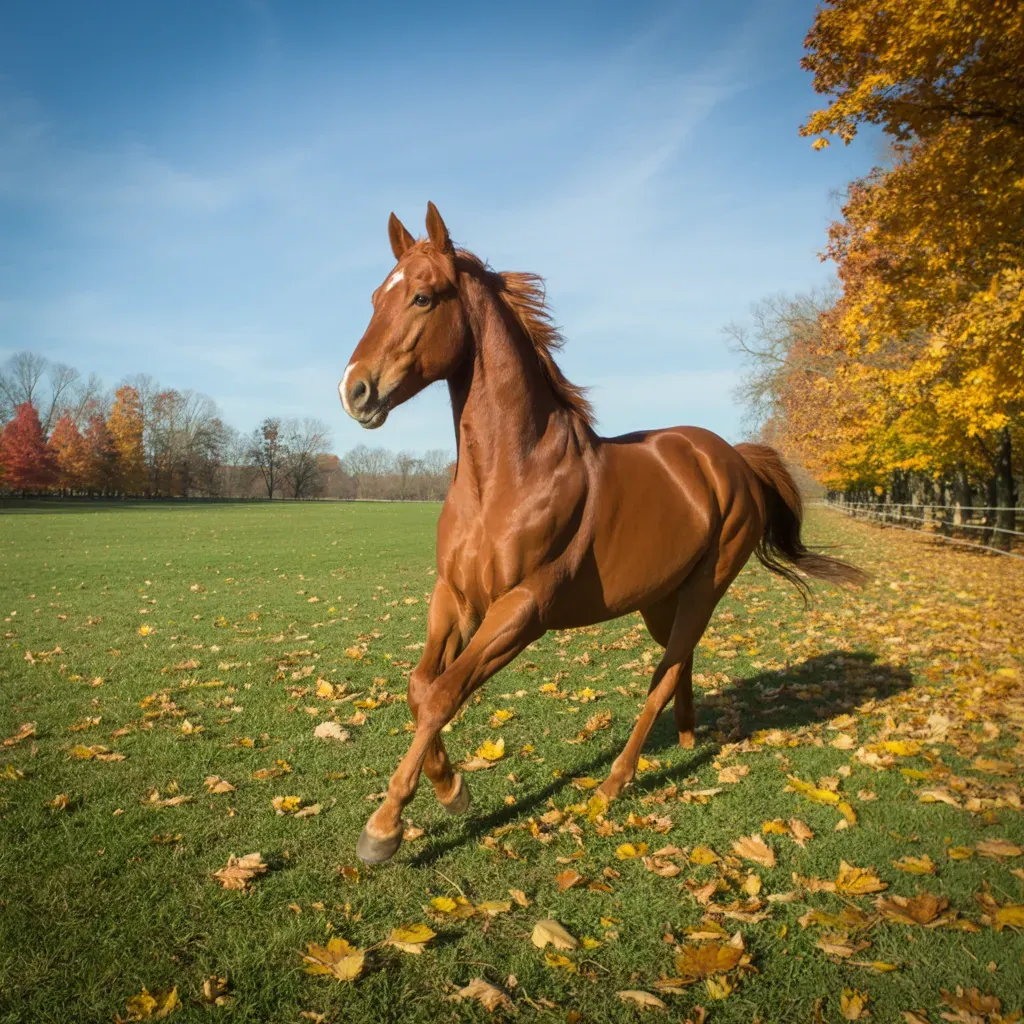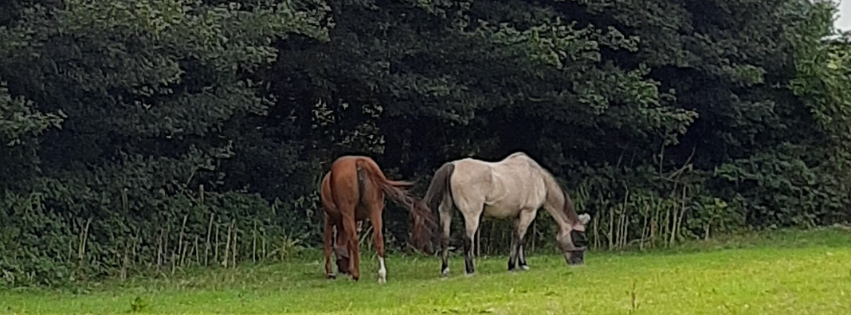Magnificent Magnesium
Whether horse or human ...
I've done a fair few blogs over the years on magnesium, but the importance of magnesium as a vital nutrient can’t be repeated enough. It's involved in over 600 enzymatic reactions in the body - yes, you read that right - a whopping 600-plus. And whether horse or human, it’s also one of the most common nutrient deficiencies, especially as we get older. There's no question that all of us need this super-mineral for literally hundreds of our biochemical processes, simply to function properly.
Just to name a few, we need magnesium for energy and neurotransmitter production, a healthy heartbeat, bone metabolism, sleep, relaxation ... And since magnesium is involved in so many functions, deficiency symptoms can also show up just about anywhere. And yet magnesium deficiency often goes undetected because it doesn’t present with the obvious physical signs and symptoms of nutrient deficiency-related issues. Even though this is well established in the literature, conventional medicine isn’t trained to screen or test for magnesium deficiencies.
In us humans it can trigger insomnia, migraines, high blood pressure and osteoporosis – all linked to low magnesium levels. It’s even been linked to aging. And as for our horses, how many times have you heard someone say their horse 'isn’t right', or that they’re 'misbehaving', 'won't listen', even being 'aggressive'. And how many times have we seen more and more gadgets and riding aids strapped on to control an apparent 'naughty' horse?
As the saying goes, "Horses don't have bad intentions - they simply react."
This is actually a physiological fact - a horse's brain doesn't have a frontal lobe, this being the area of the brain that figures stuff out, so they actually don't have the ability to have 'intentions' - they literally can only react. (All covered in our Mineral Solutions - the story behind it all page).
So, if you've ever seen any of the following arise with no obvious explanation, they've all been linked to nutrient deficiency:
- Your normally friendly, chilled horse becoming suddenly full of nervous energy, even aggressive.
- Suddenly becoming irrationally herd-bound.
- Becoming nappy, spooky, belligerent, stubborn, resistant, headshy, headshaking, girthy, cold-backed.
- Problems going into canter, bunny-hopping or fly-bucking into it (this was me and Murf back in the day).
- Not able to track up, or strike off on the required lead.
- Stiffness in the neck, the high banana neck (Murf again), or a hollow back, stringhalt, or worse, staggers.
And let's not also forget that chronic stress, anxiety and exercise all deplete magnesium (as does caffeine/sugar in us humans), so it's pretty much a given that we could all benefit from getting a little more magnesium in our lives, especially as we’re all at a disadvantage from the start due to the food we eat. And it’s all because for the last half-century-plus, our soil has been significantly depleted in minerals.
In today’s farming practices, government-subsidised crops that are used for ultra-processed food production – i.e. wheat, corn and soya – take precedence over fruits, vegetables, nuts and seeds. The industrialised agricultural practices needed to support BigFood corporations have ruined our soil health and the health of our planet.
An estimated 2.5-billion litres of pesticides are poured onto farmland every year, and while these agrochemicals kill pests, they do so at the cost of sterilising the soil microbiome and robbing it of essential minerals, never mind the tilling which causes soil erosion ten-times faster than it can be replaced.
And it’s not just magnesium. Our soil is being depleted of calcium and phosphorus - even iron too. 50 years ago, carrots had 75% more magnesium than today, and a head of broccoli had twice as many nutrients, so it’s no wonder that we’re all so nutrient deficient.
We know that our horses need a minimum average of 2g/100kg bodyweight of elemental magnesium supplemented daily to compensate for our UK soil's deficiency, which is easy enough to do – see our EquiVita/VitaComplete mineral balancer range, but for us humans it’s difficult to meet the recommended dietary allowance (RDA) for magnesium through diet alone – the RDA for adult men is 420mg and 320mg for women. This might make getting magnesium from food sources feel like a lost cause, but studies show that a magnesium-rich diet can still be beneficial for preventing chronic issues associated with magnesium deficiency.
The good news is that some foods provide great levels of magnesium, i.e. 2-tbsp pumpkins seeds will give us 168mg, and 20 almonds have 80mg. One decent serving of spinach yields 80mg, and as a real treat there's dark chocolate - a bar with 70% cacao (or higher for less sugar) will give us 50mg in just 30g. However, the not so good news is that when it comes to plants as food, only 30-40% of magnesium is bioavailable because it comes bound to anti-nutrients like phytic acid, that make it harder to absorb, so just like our horses, there are times when supplementation is necessary.
So, how do we pick the right magnesium supplement for us humans? Here are the top three recommended magnesium supplements:
- Magnesium glycinate - this form of magnesium comes bound to the amino acid glycine and has a high bioavailability without a laxative effect. Magnesium glycinate is an excellent broad-spectrum magnesium supplement - a daily dose of 500mg can significantly balance deficiencies, which can help prevent osteoporosis and heart disease. It also works well for those suffering from anxiety, insomnia, and high blood pressure.
- Magnesium citrate - this can help get the bowels moving. However, high doses of magnesium citrate can deplete other essential minerals, so it’s best to start with a smaller dose and work your way up.
- Our old favourite, Magnesium oxide, which in humans is thought to help migraine sufferers. Again, another one to start with a low dose - 150-200mg per day - and work your way up to 400-600mg/day as a migraine-prevention strategy. Magnesium oxide can also help with heartburn, constipation, and indigestion.
And for our horses? It's magnesium oxide all the way. And when we have the typical spring grass effect, or any time that the grass flushes and our horses become a bit 'wired', we can safely double that 2g/100kg bodyweight elemental magnesium oxide by adding it separately into the feedbowl.
Our Magnesium Oxide is a pharmaceutical-grade low-iron powder, high purity at 98.0% - 100.5%, providing 60.6% elemental magnesium content for horses.










